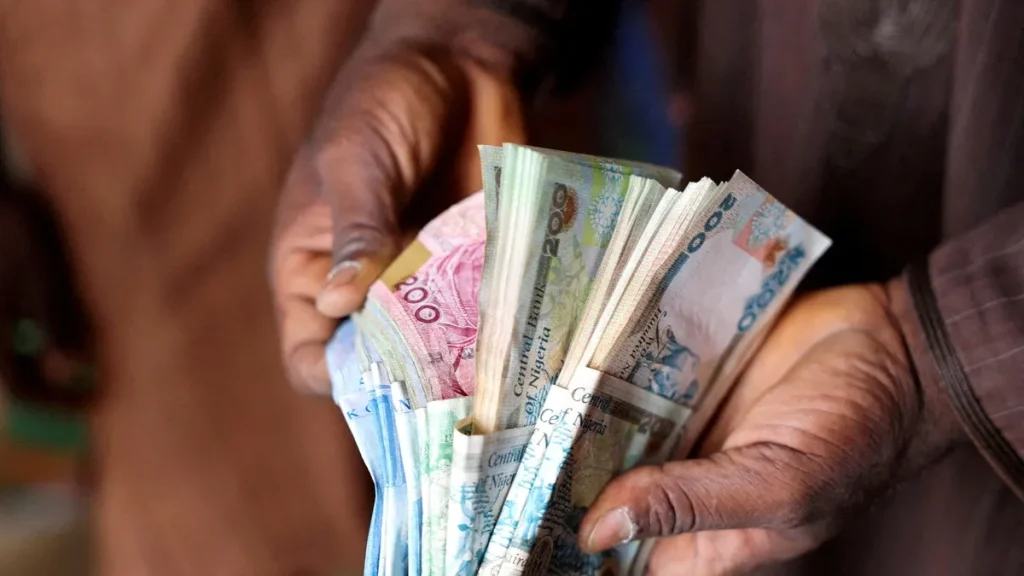Nigeria’s currency, Naira experienced a historic decline in the parallel market on Tuesday, driven by persistent dollar shortages and a surge in demand for the greenback.
The unit tumbled by 1.5% to 1,305 naira per dollar compared to the previous day, as reported by Abubakar Mohammed, the CEO of Forward Marketing Bureau de Change Ltd., a firm that compiles data on the informal market in Lagos. This resulted in a widening gap over the official rate, which stood at 838 naira on Monday, reaching an alarming 36%, according to FMDQ, a tracker of exchange rates for the West African nation.

Abubakar Mohammed explained, “Dollar demand has risen steadily since the start of January, from businesses that want to restock goods or their raw materials as well as individuals needing dollars for studies abroad.”
Despite efforts by authorities to enhance currency supply, Africa’s most populous nation grapples with acute foreign currency shortages. President Bola Tinubu’s foreign-currency reforms in June contributed to a staggering 50% depreciation of the naira against the dollar last year, prompting many of Nigeria’s major companies to declare losses after recalculating overseas loans and letters of credit using the weaker exchange rate.
Governor Olayemi Cardoso of Nigeria’s central bank has pledged to clear a backlog of forward foreign-exchange contracts, estimated at between $7 billion and $10 billion, with the aim of boosting investor confidence and attracting inflows.
In a recent development, the government received $2.25 billion from a syndicated loan arranged by the African Export-Import Bank to stabilise the foreign exchange market, with an additional $1.05 billion expected later.


